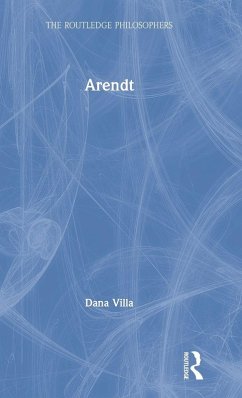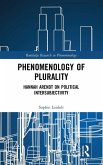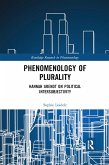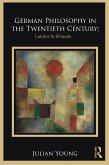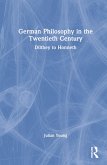Hannah Arendt (1906-1975) was a philosopher and political theorist of astonishing range and originality and one of the leading thinkers of the twentieth century. A former student of Martin Heidegger and Karl Jaspers, she fled Nazi Germany to Paris in 1933, and subsequently escaped from Vichy France to New York in 1941. The Origins of Totalitarianism (1951) made her famous. After visiting professorships at Princeton, Berkeley, and the University of Chicago, she took up a permanent position at the New School in 1967. Renowned for The Human Condition, On Revolution, and The Life of the Mind, she is also known for her brilliant but controversial reporting and analysis of Adolf Eichmann's 1961 trial in Jerusalem-an experience that led to her to coin the phrase "the banality of evil."
In this outstanding introduction to Arendt's thought Dana Villa begins with a helpful overview of Arendt's life and intellectual development, before examining and assessing the following important topics:
Arendt's analysis of the nature of political evil and the arguments of The Origins of Totalitarianism political freedom and political action and the arguments of On the Human Condition, especially Arendt's return to the ancient Greek polis and her critique of modernity modernity and revolution and Arendt's text On Revolution responsibility and judgment and her reporting of the Eichmann trial Arendt's view of contemplation and the fundamental faculties of mental life Arendt's rich legacy and influence, including her civic republican understanding of freedom and her influence on the Frankfurt School, communitarianism, and democratic theory.
Including a chronology, chapter summaries, and suggestions for further reading, this indispensable guide to Arendt's philosophy will also be useful to those in related disciplines such as politics, sociology, history, and economics.
In this outstanding introduction to Arendt's thought Dana Villa begins with a helpful overview of Arendt's life and intellectual development, before examining and assessing the following important topics:
Arendt's analysis of the nature of political evil and the arguments of The Origins of Totalitarianism political freedom and political action and the arguments of On the Human Condition, especially Arendt's return to the ancient Greek polis and her critique of modernity modernity and revolution and Arendt's text On Revolution responsibility and judgment and her reporting of the Eichmann trial Arendt's view of contemplation and the fundamental faculties of mental life Arendt's rich legacy and influence, including her civic republican understanding of freedom and her influence on the Frankfurt School, communitarianism, and democratic theory.
Including a chronology, chapter summaries, and suggestions for further reading, this indispensable guide to Arendt's philosophy will also be useful to those in related disciplines such as politics, sociology, history, and economics.
"Villa's comprehensive account of Arendt's work stresses that although she wrote extensively about the rupture in the tradition of political philosophy that made it impossible to rely on the insights of the past alone, Arendt remained in continual conversation with Plato and Aristotle, Saint Augustine and Nietzsche, Machiavelli and Kant, Hegel and Marx. Central to this conversation is Arendt's critique of philosophy for being contemptuous of the "frailty" and unpredictability of public affairs that often frustrates political actors, who frequently discover the full meaning of their actions only in retrospect. Villa is particularly astute in analyzing the temptations this unpredictability gives rise to: some are led to treat political life as an artifact that could be constructed as an engineer designs a building or a sculptor builds a monument." - Seyla Benhabib, New York Review of Books
"No student of Arendt should be without this excellent book, which will doubtless become a classic in the field. It combines breadth and depth in discussion of Arendt's major works, and is written in beautifully clear prose. Detailed analysis is interwoven with sharp philosophical commentary, exemplifying Arendt's concern with 'worldliness' by connecting her thinking with recent political concerns." - Frisbee Sheffield, University of Cambridge, UK
"No student of Arendt should be without this excellent book, which will doubtless become a classic in the field. It combines breadth and depth in discussion of Arendt's major works, and is written in beautifully clear prose. Detailed analysis is interwoven with sharp philosophical commentary, exemplifying Arendt's concern with 'worldliness' by connecting her thinking with recent political concerns." - Frisbee Sheffield, University of Cambridge, UK

